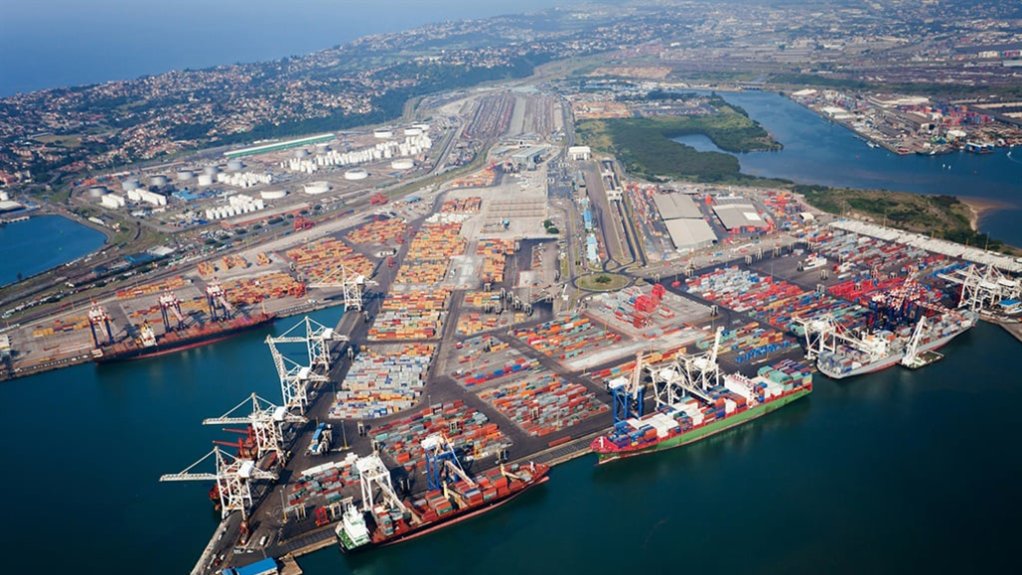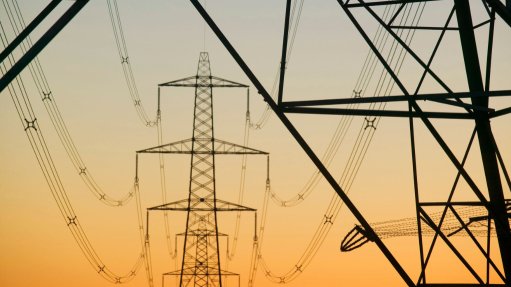South Africa’s energy and transport reforms could create 500 000 jobs – World Bank
South Africa could increase its GDP growth by 1% in the short term and up to 3% in the medium term by addressing persistent energy and freight logistics constraints, the World Bank’s latest ‘South Africa Economic Update’ states. Such projected increases in economic activity, the report adds, could create about 200 000 jobs in the short term and 500 000 jobs in the medium term.
The bank estimates that constraints in both sectors have cost the economy three to five percentage points of GDP growth, and have disproportionately affected small businesses and low-income households.
“The authorities have responded to this crisis by adopting a series of reforms, especially in power generation, that have already produced positive results with the emergence of privately sponsored renewable energy projects.
“At this stage, it is important to continue this effort by extending these reforms to transmission and distribution in the energy, railway, and port sectors,” the fifteenth edition of the update argues.
The World Bank is currently forecasting growth of 1.8% for South Africa in 2025, on the back of weak estimated growth of 0.8% in 2024. It is anticipating growth of only 1.9% and 2% in 2026 and 2027 respectively.
The outlook is slightly more bullish than one published recently by the International Monetary Fund, which forecast 1.5% growth for 2025, rising to 1.8% by 2027. It is also marginally higher than the National Treasury’s most recent outlook for growth of 1.7% this year and average growth of 1.8% over the three-year horizon.
“The short-and medium-term outlook has improved, and the GDP growth rate is projected to converge toward 2%,” the report states, highlighting the successful 2024 political transition, the decline in loadshedding since March 2024 and the sharp reduction in inflation as supportive factors.
The report also points to downside risks, including South Africa’s vulnerability to geopolitical developments and any trade war. However, it argues that domestic factors remain the biggest risk to growth, including what it describes as a fragile coalition formed by 11 political parties after the May 2024 elections.
“Similarly, if the consensus for economic reforms has become stronger, the opening of infrastructure sectors could still be challenged by vested interests, including from existing State-owned enterprises that have been losing some of their monopolistic powers during the transition.”
The bank also highlights the inadequacy of even the 2% growth outlook; a pace that will increase the average income per capita by a paltry 1.1% a year.
“This means it could take almost 65 years for the country to become a high-income economy,” the report notes, while indicating that growth of between 3% and 5% is needed to ensure far higher levels of job creation and economic inclusion.
It proposes that South African policymakers should consider three mutually reinforcing actions to achieve faster and more inclusive growth, including addressing the infrastructure constraints in energy and transport.
The other two proposals relate to enhancing efficiency in public spending and strengthening human capital development, the latter being a major theme of the latest update which has a focus on the country’s basic education sector.
The bank concludes that despite improving access to quality basic education for two decades, South Africa continues to face a multidimensional “learning crisis”.
The report proposes a range of interventions to improve the foundations of learning through introducing structured daily lesson plans, teacher support, benchmarked reading assessments and improving access to early childhood development services.
The bank also proposes that government leverage the private sector to help expand the quality and coverage of its education system, while targeting meaningful efficiency gains in public spending on education.
Article Enquiry
Email Article
Save Article
Feedback
To advertise email advertising@creamermedia.co.za or click here
Announcements
What's On
Subscribe to improve your user experience...
Option 1 (equivalent of R125 a month):
Receive a weekly copy of Creamer Media's Engineering News & Mining Weekly magazine
(print copy for those in South Africa and e-magazine for those outside of South Africa)
Receive daily email newsletters
Access to full search results
Access archive of magazine back copies
Access to Projects in Progress
Access to ONE Research Report of your choice in PDF format
Option 2 (equivalent of R375 a month):
All benefits from Option 1
PLUS
Access to Creamer Media's Research Channel Africa for ALL Research Reports, in PDF format, on various industrial and mining sectors
including Electricity; Water; Energy Transition; Hydrogen; Roads, Rail and Ports; Coal; Gold; Platinum; Battery Metals; etc.
Already a subscriber?
Forgotten your password?
Receive weekly copy of Creamer Media's Engineering News & Mining Weekly magazine (print copy for those in South Africa and e-magazine for those outside of South Africa)
➕
Recieve daily email newsletters
➕
Access to full search results
➕
Access archive of magazine back copies
➕
Access to Projects in Progress
➕
Access to ONE Research Report of your choice in PDF format
RESEARCH CHANNEL AFRICA
R4500 (equivalent of R375 a month)
SUBSCRIBEAll benefits from Option 1
➕
Access to Creamer Media's Research Channel Africa for ALL Research Reports on various industrial and mining sectors, in PDF format, including on:
Electricity
➕
Water
➕
Energy Transition
➕
Hydrogen
➕
Roads, Rail and Ports
➕
Coal
➕
Gold
➕
Platinum
➕
Battery Metals
➕
etc.
Receive all benefits from Option 1 or Option 2 delivered to numerous people at your company
➕
Multiple User names and Passwords for simultaneous log-ins
➕
Intranet integration access to all in your organisation




















